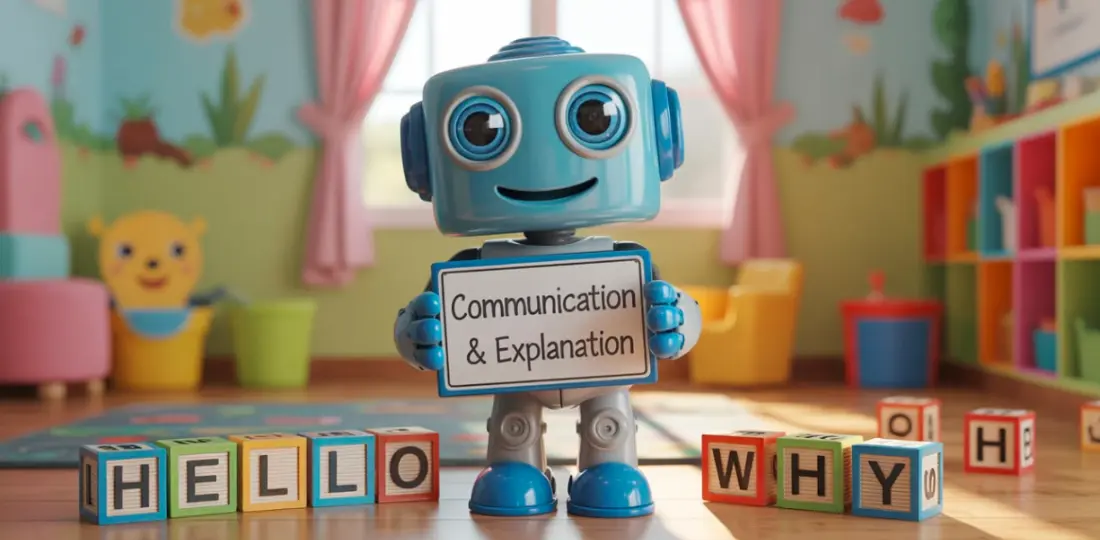Becoming a parent transforms your entire existence in ways that no amount of preparation can fully capture. The moment you hold your child for the first time, you realise that developing effective parenting skills isn’t just about following guidelines. It’s about building a foundation where unconditional love meets practical wisdom.
Many new parents assume that natural instincts will guide them, but the reality is that kids absorb everything from your tone of voice to your body language, making every interaction a teaching moment that shapes their developing sense of self. What most parenting advice fails to address is how your own limitations and needs as a family leader directly impact your child’s growth.

Children don’t just observe your actions; they internalise your emotional patterns, your problem-solving approaches, and even your relationship with mistakes. The pressure to be perfect can actually work against you, because kids who witness their parents struggling, adapting, and learning develop stronger resilience than those raised by seemingly flawless caregivers. Understanding that parenting is fundamentally about connection rather than control allows you to approach each day with compassion for both yourself and your child, creating space for authentic growth in your household.
5+ Proven Secrets Of How to Be A Good Parent
Building Self-Esteem & Unconditional Love
The foundation of self-esteem starts when babies first see themselves through their parents’ eyes. Every expression and carefully chosen words affect their developing sense of worth more than anything else in their formative years. Praising their accomplishments, however small they may seem, helps make them feel proud of their efforts.
Letting them do things independently, even when it takes longer or creates a mess, will make them feel capable and strong in their own abilities. This approach contrasts sharply with belittling comments or comparing them unfavorably to another sibling, which can make them feel worthless and inadequate.
Avoid making loaded statements or using words as weapons against developing minds. Comments like “what a stupid thing to do” or “you act more like a baby than your little brother” cause emotional damage just as physical blows would do. Choose your words carefully and be intentional about letting your child know that everyone makes mistakes, that you still love them even when you don’t approve of their behaviour.
While you’re responsible for correcting and guiding them, how you express your corrective guidance makes all the difference in how your child receives it. When you have to confront your child, avoid blaming, criticising, or fault-finding, which can hurt and lead to resentment. Instead, try to nurture and encourage even when disciplining – make sure they know that although you want and expect better next time, your love for them remains there, no matter what.
It’s simply not possible to spoil a child with love, as one expert writes: “What we often think is the product of spoiling is never the result of showing too much affection – it’s usually a consequence of giving things in place of love, things like leniency, lowered expectations, or material possessions.”
Boost Child Self-Esteem
Have you ever stopped to think about how many times you react negatively to your child in a given day? You may find yourself criticising far more often than complimenting – how would you feel about a boss who treated you with that much negative guidance, even if it was well-intentioned? A more effective approach: catch them doing something right.
“You made your bed without being asked – that’s terrific!” or “I was watching you play with your sister and you were very patient.” These statements will do more to encourage good behaviour over the long run than repeated scoldings. Make it a point to find something to praise every day. Be generous with rewards – your hugs and compliments can work wonders and are often reward enough. Soon, you will find you are growing more of the behaviour you would like to see.
This is one of the most important principles, as parenting expert Steinberg tells WebMD: “What you do makes a difference – your kids are watching you. Don’t just react on the spur of the moment – ask yourself, ‘what do I want to accomplish?’ and ‘is this likely to produce that result?'”
Show Your Love Unconditionally
The discipline necessary in every household serves one primary goal: to help children choose acceptable behaviours and learn self-control. They may test the limits you establish for them, but they need those limits to grow into responsible adults. Establishing clear house rules helps children understand your expectations – you might develop some rules that might include “no TV until homework is done” or “no hitting, name-calling, or hurtful teasing allowed.
You might want to have a system in place: one warning followed by consequences such as a time-out or loss of privileges. A common mistake parents make is not following through with consequences. You can’t discipline your child for talking back one day, then ignore it the next. Being consistent teaches children what you expect. If you don’t manage your child’s behaviour when he is young, he will have a hard time learning how to manage himself when he gets older and you aren’t around.

At any time of night, you should always be able to answer these three questions: “Where is my child?”, “Who is my child with?”, and “What is my child doing?” The rules your child has learned from you are going to shape the rules he applies to himself – but you can’t micromanage your child forever. As Steinberg tells WebMD, “once they’re in middle school, you need to let them do their own homework, make their own choices, and not intervene.
If your rules vary from day to day in an unpredictable fashion, if you enforce them only intermittently, your child’s misbehaviour is your fault, not his. Your most important disciplinary tool is consistency – identify your non-negotiables. The more your authority is based on wisdom, not power, the less your child will challenge it. Many parents have problems being consistent, Steinberg tells WebMD: “When parents aren’t consistent, kids get confused. You have to force yourself to be more disciplined.”
Positive Reinforcement & Catching Good Behaviour
Many parents find themselves constantly correcting their children, but the real magic happens when you pay attention to what they’re doing right. Instead of waiting for problems to arise, look for those small moments – maybe your teen made their bed without being asked, or your younger child helped their sibling.
Being involved means making these observations a priority, even during the morning rush. Studies have shown that children who receive consistent positive attention for good behaviour are more likely to repeat those actions. Quality time doesn’t always mean elaborate activities; sometimes it’s making popcorn together and acknowledging how respectful they were during a disagreement.
When you treat your child with the same courtesies you’d give any adult – speaking politely, respecting their opinion – you’re modelling the behaviour you want to see. Young children learn by watching their parents, and they notice whether you’re truly present. Rather than saying “good job” for everything, be specific: “I noticed how patient you were when your friend was learning that game, and that shows real kindness.”
Positive Development
Development happens in unexpected ways, and parents should do their best to recognise that what works with their three-year-old today won’t work as well in a year or two. As your child changes, you’ll gradually have to change your approach. The same intellectual curiosity that makes your 13-year-old inquisitive in the classroom is also making them question everything at the dinner table – this isn’t rebelliousness, it’s cognitive growth.
Encouraging independence while maintaining boundaries requires understanding that your child’s push for autonomy is part of human nature – children want to feel control rather than feel controlled by someone else. Setting limits helps them develop self-direction. Allow your teen to earn more freedom by demonstrating responsibility, and seize every available moment to make connections – attending concerts, games, or other events communicates caring and lets you get to know more about their world.
Catching Good Behaviour
Because children aren’t getting the attention they want from parents, they often act out or misbehave because they’re sure to be noticed that way. Break this pattern by actively looking for opportunities to catch your child doing something positive – maybe they put their dishes in the sink without being asked, or they showed tolerance when a friend made a mistake.
It often means rearranging your priorities to focus on what your child needs most – sometimes that’s leaving the dishes and taking a walk after dinner, or getting up 10 minutes earlier so you can eat breakfast together. When you do catch them making good choices, be specific about what you observed: their friendliness toward a classmate, their honesty about a mistake, or their unselfish behaviour when sharing. Create a special night each week to be together and let your child help decide how to spend that time.
Setting Limits & Consistent Discipline
The foundation of effective discipline lies in understanding that children naturally push against boundaries. It’s not rebelliousness but a developmental necessity for building self-direction. When parents establish limits without explanation, they miss crucial opportunities to help their child develop internal judgment. The consistent application of consequences becomes meaningless if a 12-year-old doesn’t understand the underlying values and priorities that drive family expectations.

Studies reveal that children who participate in decisions about household rules show greater motivation to carry them out, transforming discipline from external control into collaborative problem-solving. Harsh approaches like spanking create the opposite effect of what parents intend. Children who are hit typically become more aggressive and prone to fighting with others.
The evidence consistently shows that time-out strategies work better than physical punishment, allowing children to develop tolerance and emotional regulation. Parents should focus on areas that need the most attention rather than trying to address everything all at once. When you treat your child respectfully during discipline moments, you model the behaviour you want to see, creating a foundation for healthy relationships with others throughout their life.
Set Limits Together
Negotiating boundaries together transforms potential power struggles into learning opportunities where children develop an understanding of family dynamics. Parents who reason with their children and invite them to work on solutions create an environment where kids feel heard while still respecting established expectations.
The key lies in making your child feel like a partner in creating household rules rather than a victim of arbitrary adult decisions. When parents explain their concerns and express their feelings about specific behaviours, children learn to consider the impact of their actions on others. Adolescents especially need to understand the reasoning behind limitations; what seems obvious to adults may not be evident to a teenager who lacks the experience and judgment that comes with age.
Parents should offer choices within established boundaries, allowing teens to earn independence while maintaining safety and family values. This collaborative approach helps children develop critical thinking skills and ownership of their decisions, setting them up for success in adult relationships where compromise and communication are essential.
Establish Discipline
Effective discipline begins with parents recognising their own strengths and weaknesses as disciplinarians. Some struggle with being too harsh, while others find it difficult to maintain consistency. The most rewarding discipline strategies emerge when parents adapt their approach to fit their child’s developmental stage and temperament.
A three-year-old’s drive for independence manifests differently than a teenager’s push for autonomy, requiring parents to adjust their methods accordingly. Parents must be willing to change their parenting style as circumstances evolve. Creating clear consequences involves more than simply saying “because I said so.” Children deserve explanations that help them understand the connection between their actions and outcomes.
Parents should describe problems specifically and include their child in developing solutions, making discipline a learning opportunity rather than a power struggle. When parents consistently follow through on established consequences while treating their child with kindness and respect, they demonstrate that discipline is about guidance rather than punishment. This approach helps children develop internal motivation to make good choices even when parents aren’t watching.
Be Consistent
Consistency in parenting requires parents to examine their own needs and limitations, honestly admitting when they’re burned out, which prevents inconsistent reactions that confuse children. Parents who vow to work on their weaknesses while accepting their imperfections create more stable environments for their families. The challenge lies in maintaining consistent expectations while adapting to your child’s changing developmental needs.
What works with your child now won’t necessarily work as well in a year or two, requiring parents to balance consistency with flexibility. Realistic expectations prevent parents from feeling constantly let down by their child’s behaviour. Understanding your child’s developmental stage helps you respond appropriately to challenging behaviours.
Parents should take time to assess whether their expectations are age-appropriate before assuming their child is being deliberately difficult. Consistent discipline doesn’t mean rigid discipline. It means reliably responding to behaviours in ways that align with your family’s values while considering your child’s individual temperament and circumstances. When parents demonstrate consistent caring through both positive and corrective interactions, children develop security and trust in the relationship.
Avoid Harsh Discipline
When parents are dealing with challenging behaviours, they should never resort to physical punishment under any circumstances. Children who are slapped become more likely to be bullies themselves, creating a cycle where they’re more likely to use aggression to solve disputes. There are countless research studies showing that harsh discipline causes behavioural problems, which can lead to long-term problems.
Steinberg tells WebMD that there are many effective discipline ways, including positive reinforcement strategies, which do not involve aggression. The ripple effects of physical punishment extend far beyond the immediate moment, creating a lot of emotional damage that manifests in various ways throughout childhood and into adulthood.
Quality Time & Involvement
It’s often challenging for busy families to get together for a family meal, let alone spend quality time together, but there is probably nothing your child would like more. Try getting up 10 minutes earlier each morning so you can eat breakfast together, or leave the dishes in the sink and take a walk after dinner. Children who aren’t getting the attention they want from parents often act out or misbehave because they’re not sure you’ve noticed them.

One way many parents overcome scheduling challenges is to schedule dedicated time and create a special family night each week, letting children help decide how the evening will look. Simple gestures connect families, too – put a loving note or something special in your kid’s lunchbox. While it may seem less important than other priorities, giving undivided attention is especially crucial for younger children because they have fewer windows of opportunity to express their needs.
Make Time For Kids
You should do your best to be emotionally available when your child does express a desire to talk or participate in shared activities. Attending school concerts, games, and other events communicates to your child that it lets them know they matter to you. Learning about his or her friends and interests represents one of the most important ways to stay connected.
Don’t feel guilty if you’re working – many parents find that even little moments you do together, like making popcorn, playing cards, or window shopping, will be what children remember most. Being actively involved in your child’s life takes hard work, and it often means rethinking and rearranging your priorities, frequently sacrificing what you personally want to do for what your child needs to experience.
Do remember that there are mental and physical well-being aspects to being present – physically being there does not mean doing their homework for them or reading over their shoulder and correcting every homework assignment for them, as teachers need to know whether or not your child truly understands the material. As Steinberg tells WebMD, if you do all the homework yourself, you’re letting down both your child and their teacher by misrepresenting what they actually know.
Involved With Your Kid
Young children learn a tremendous amount about how to act by watching their parents’ behaviour. Younger children, especially, are particularly attuned to emotional, more than verbal, cues they take from adults. Before you lash out or blow your top in front of them, think about this: your reaction demonstrates how you want them to behave when they feel angry.
Be aware that you’re constantly being watched by your children. Studies have shown that children who witness aggression usually have learned that role modelling for responding with aggression at home. Model the traits you wish to see in them: friendliness, honesty, and generosity. Exhibit unselfish behaviour – do things for other people without expecting any reward or thanks. Offer sincere compliments. Above all, treat your child the way you expect other people to treat them.
The best way to get respectful treatment from him or her, writes Steinberg, is if you should give them the same courtesies you would give anyone else: speak to him politely, respect his opinion, pay attention when he is speaking to you, treat him kindly, and try to please him when you reasonably can. Remember, the way you treat their child becomes their blueprint for how others should treat them – this relationship serves as the foundation for his or her future relationships with others.
Role Model & Respect
Children are more constantly being watched by parents than we realize, and studies have shown that kids who usually have positive role models for handling conflict rarely display aggression at home. What parents often wish to see in their children kindness, patience, and respect must first be demonstrated through our own actions.
Being unselfish doesn’t mean sacrificing your identity; instead, offer genuine compliments and, above all, speak to him politely when discussing his opinion. Pay attention when he is speaking to you, showing him through your body language that you value what he’s sharing, and try to please him when you can without compromising important boundaries. The way we treat our children becomes their internal template for how relationships should function, creating a relationship foundation for their future relationships with peers, teachers, and eventually romantic partners.
Rather than demanding respect through authority alone, we earn it by demonstrating what respectful interaction looks like in daily moments, whether we’re discussing chores, addressing mistakes, or celebrating achievements. This approach requires consistent self-awareness because children notice the gap between what we say and what we do, often calling us out when our actions don’t match our words.
Be a Role Model For Kids
Parents serve as walking examples of how adults navigate the world, making every interaction a teaching moment about character, resilience, and integrity. When we handle stress with grace, admit our mistakes openly, and treat others with kindness, we’re providing a blueprint for emotional intelligence that no lecture could match.
Children naturally mirror the emotional regulation they observe, so our ability to manage frustration during traffic jams or disappointment when plans change becomes their roadmap for similar situations. The most powerful modeling happens in unguarded moments how we speak to cashiers, respond to criticism, or handle technology failures when we think no one is watching.
These spontaneous reactions often carry more weight than planned teachable moments because children can sense authenticity. They’re studying us constantly, absorbing not just our words but our tone, facial expressions, and energy, then experimenting with these patterns in their own interactions with the world.
Respect Your Child
Respecting your child means recognising them as a complete person with valid thoughts, feelings, and perspectives, even when their age limits their experience or judgment. This involves listening to their concerns without immediately dismissing them as trivial, asking for their input on family decisions when appropriate, and acknowledging when they’ve made valid points during disagreements. True respect also means honouring their developmental stage rather than expecting them to think or behave like miniature adults.
Respectful parenting includes giving children space to form their own opinions, make age-appropriate choices, and experience natural consequences without constant intervention. This doesn’t mean permissive parenting or avoiding guidance—it means delivering that guidance in ways that preserve their dignity and sense of autonomy. When we respect our children’s emotional experiences, validate their struggles, and avoid shaming them for normal developmental behaviours, we build trust that encourages open communication throughout their lives.
Communication & Explanation
You can’t expect children to do simply what you, as parents, say without understanding the reasoning, so they need explanations that help them want to cooperate as much as comply. If we don’t take time to explain our decisions and rules, children will begin to wonder about our motives and whether we have any logical basis for our requests.
Parents who engage with their children’s questions and allow them to express concerns and learn in a nonjudgmental way build stronger relationships. When you make rules, if there is a problem with compliance, it helps to invite children to work on the solution with you rather than simply imposing consequences.

Be sure to explain consequences clearly and make room for suggestions about alternative choices, staying open to their suggestions as well when they’re reasonable. Children who participate in problem-solving are more motivated to carry them out because they feel ownership over the good solutions they have created together.
As they mature, they want to live up to expectations they’ve helped establish rather than rebel against arbitrary rules. He writes that parents generally overexplain to young children while tending to underexplain what older kids need to understand, and that the missing may be evident to adults, but he doesn’t have the experience or context that adults have.
Conclusion
Parenting isn’t about achieving perfection. It’s about being present and encouraging your child’s natural development while admitting your limitations. Put special attention on creating something meaningful in everyday moments, whether it’s a note in your kid’s lunchbox or an undivided presence. The journey requires patience as both you and your child grow and change, understanding that what works with a 2-year-old won’t work with a 13-year-old experiencing an intellectual spurt. Take time for yourself – focusing on your own well-being means you care about modelling healthy boundaries.
FAQs (Frequently Asked Questions)
How do I know if I’m giving my child enough attention without being overprotective?
Helping your child develop a sense of security doesn’t require constant hovering. Many parents mistakenly equate their child’s push for independence with disobedience, but this autonomy-seeking behaviour is actually normal and healthy. WebMD experts tell us that children need to feel control over their own lives rather than being controlled by someone else constantly. Watch for fewer moments when your child asks for hel;p this indicates growing confidence.
What should I do when my current parenting strategies stop working?
It’s okay to acknowledge that your approach needs adjustment. Perhaps you have unrealistic expectations, for example, thinking “my kid should be potty-trained by now” when every child develops differently. You might find it helpful to examine your surroundings and alter the environment to reduce frustration. If you find yourself constantly saying “no” to your toddler, look for ways to make fewer things off-limits. As your child changes, you’ll need to change your parenting style too.
How can I balance homework help without doing the work for them?
Does physically being there mean you’re truly helping? Not always. Reading over your child’s shoulder and correcting every mistake sends the wrong message to teachers about what your child actually knows. If you do all the homework, you’re letting the teacher know whether or not your child understands the material. Instead, create quality windows of opportunity where you’re available for guidance without taking control.
When should I seek outside help for parenting challenges?
Read up on child development or talk to other parents and specialists when you feel let down by your current results. Different environments have an impact on behaviour, so you might be able to change problematic patterns by changing the setting. This will cause less stress for both you and your child. Remember that chances are what works now won’t work as your child matures, so don’t hesitate to make adjustments.
How do I handle my own parenting mistakes and limitations?
Face it you are imperfect and have weaknesses as a parent. Your abilities fluctuate, and it’s crucial to admit your limitations. “I am a loving and dedicated parent, but I need to work on being more patient with myself.” Try to have compassion for yourself and your partner. You don’t have to have all the answers, and it’s perfectly fine to be forgiving of yourself. Make parenting a manageable job by focusing on the issues that need immediate attention rather than trying to address everything at once.
How can I adapt my parenting as my child grows older?
Keep pace with your child’s development. Remember, your child is growing up. Consider how their age is affecting their behaviour. The same defiance that’s making you say no all the time might actually indicate healthy growth. What’s motivating him to resist being toilet-trained today? As development expert Steinberg writes, the same curiosity that is making your teenager inquisitive in the classroom is also making her argumentative at the dinner table.
What’s the importance of fostering independence, and how do I do it safely?
Encouraging independence helps children develop confidence essential for being successful in life – she’s going to need both security and autonomy. It is completely normal for children to push for independence, says Steinberg. Parents often worry that promoting their child’s autonomy conflicts with safety, but it’s part of human nature to want control over one’s life rather than feeling completely controlled.
How do I take care of myself while being a good parent?
Admit when you’re burned out and take breaks from parenting. Do things that will make you happy – focusing on yourself does not make you selfish. It simply demonstrates that you understand the importance of self-care, which is another important value to model for your children. Taking care of your well-being shows your kids that maintaining personal health is essential for being able to care for others effectively.



